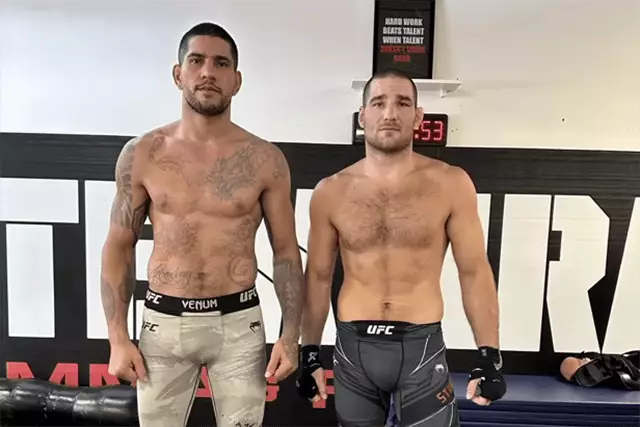In the high-stakes world of mixed martial arts (MMA), the choices fighters make can often ripple through their careers. Recent developments surrounding light heavyweight champion Alex Pereira’s decision to corner Sean Strickland in his upcoming title fight against Dricus Du Plessis have elicited criticism and concern from veterans like Daniel Cormier. Cormier’s insights shed light on a central query: In a sport defined by ruthless competition, how much loyalty is too much?
Pereira’s upcoming role as Strickland’s cornerman at UFC 312, scheduled for February 8, 2024, poses unique challenges and risks. Pereira, who is gearing up for his own title defense against Magomed Ankalaev a month later, is set to travel to Australia—halfway across the globe. This travel may disrupt his training regimen during a critical period as he prepares for a formidable opponent. Cormier raises valid concerns regarding the potential impact this might have on Pereira’s preparation strategy and mental focus heading into UFC 313.
The psychological weight of competing at a championship level is immense. A fighter must not only maintain peak physical conditioning but also manage their emotional and mental state as they approach significant bouts. Cormier emphasizes the importance of building relationships in training camps that extend beyond just physicality. He notes that the connection between Pereira and Strickland may be integral to Pereira’s decision to support him. This begs the question of how much these bonds can affect a fighter’s performance, especially in the unforgiving environment of the UFC.
However, the depth of their connection, while commendable, raises a dilemma. Strickland is set to battle Dricus Du Plessis for the middleweight title, while Pereira faces the prospect of a challenging title defense against Ankalaev soon after. This proximity to two significant events could lead to divided attention and focus for Pereira. In Cormier’s analysis, we see a compelling tension between camaraderie and self-preservation—how do fighters navigate these choices responsibly?
Daniel Cormier acknowledges Pereira’s exceptional fighting skills and legacy, stating, “Yes, he is one of the greatest fighters of all time.” This assertion underscores the prevailing sentiment that Pereira has built a robust timeline of successes in a relatively short period. Indeed, his rise to prominence in MMA has captured the attention of fans and analysts alike. His free-spirited nature is often cited as a factor contributing to his achievements. Yet, it compels observers to ponder the long-term implications of such decisions on his career trajectory.
In contrast, the weight of such loyalty could potentially hinder his immediate success. The unpredictability of injuries, subpar performances, or unexpected adversities in fight preparation can dictate the willingness to take risks. Pereira’s bond with Strickland, while strong, raises concerns about whether this commitment can overshadow the need for precision in his own training and mental readiness as he approaches a championship fight.
This incident highlights a broader issue in the world of MMA: the dynamics of interpersonal relationships among fighters. Cormier rightly points out that such commitments are not made lightly, as few would undertake the risks associated with traveling internationally to support a friend without significant reasons. In the often solitary journey of a fighter preparing for a championship, moments of camaraderie can serve as invaluable lifelines but may also become distractions.
As fans, analysts, and fellow athletes observe this developing situation, it becomes clear that simply being a fighter isn’t enough in today’s landscape. The emotional and strategic complexities of fighter relationships require careful navigation, emphasizing the need for self-awareness and judicious decision-making.
While loyalty is a commendable trait, in the unforgiving realm of UFC, each decision must also reflect a fighter’s priorities and readiness for the battles ahead. Daniel Cormier’s perspective serves as both a warning and a reminder: In the world of MMA, the line between loyalty and risk is fine—navigating it is essential for champions like Alex Pereira.

